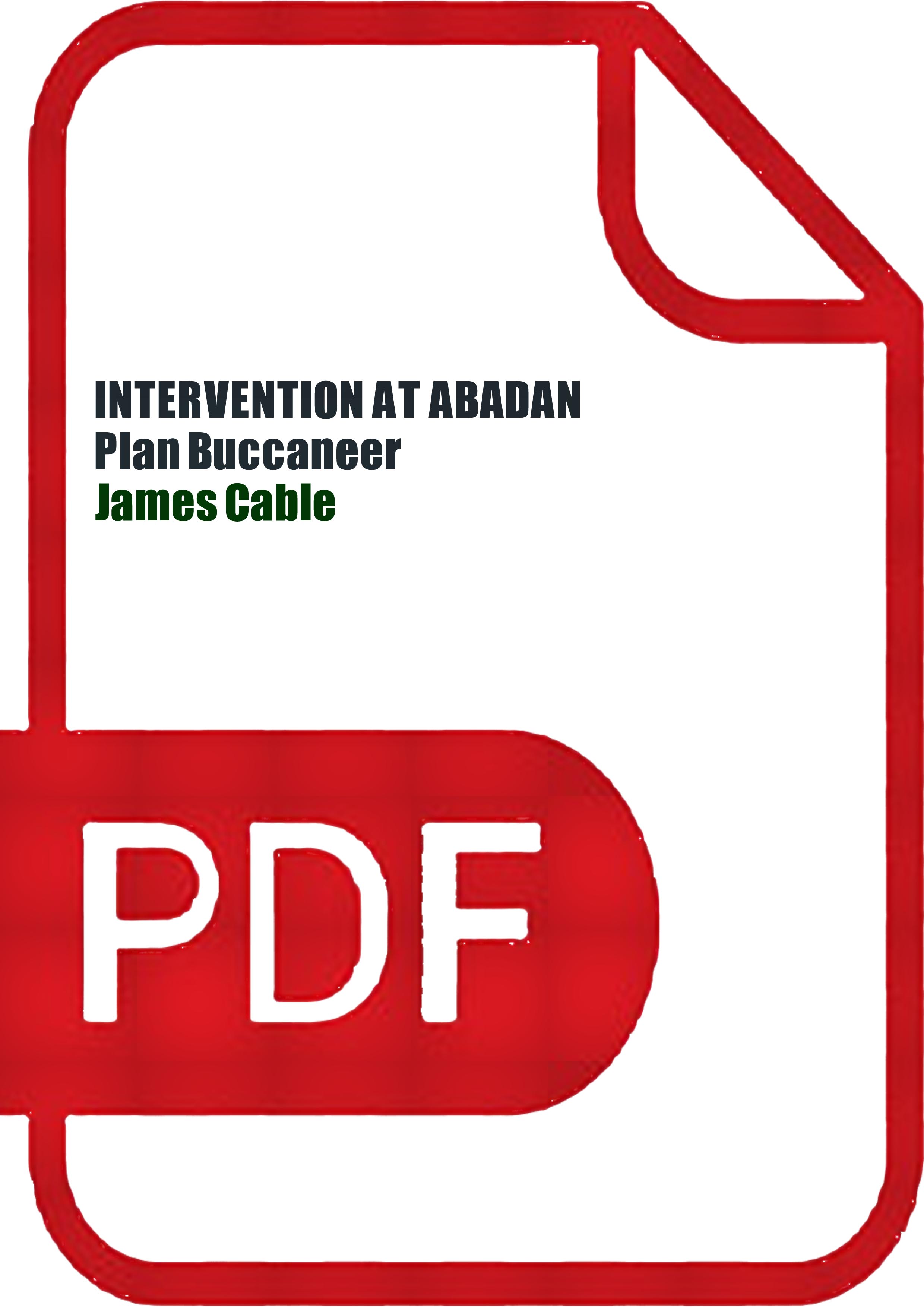INTERVENTION AT ABADAN/Plan Buccaneer/James Cable
Preface
Coercive diplomaey is aresort to specific threats or to injurious
actions, otherwise than as an aet 0/ war, in order to seeure advantage
or to avert loss . . .
James Cable
Diplomacy at Sea
This book relates how, in 1951, Britain planned to use force in order
to retain control of the world's largest oil refinery at Abadan. Units
of the British navy, army and air force were deployed, given their
preparatory orders and, at one point, brought to three hours' notice.
After many months and under strong pressure from the President of
the United States, British forces were stood down, British subjects
withdrawn from Abadan and oil-wells, pipelines and refinery abandoned.
It is a story, not previously told in any detail, of international
poker for high stakes.
It is also a case history of coercive diplomacy, a field in which the
analysis of failure is no less instructive than the sparse record of
success. This analysis will not be ethical or legal or ideologie al. The
focus is on technique: political, diplomatie and military. The treatment
aspires to be historieal, issues being presented as they were seen
at the time.
Inevitably the story is told from a British perspective, the main
source being the British documents in the Public Record Office at
Kew. Transeripts of Crown copyright records in the Public Record
Office appear by permission of the Controller of HM Stationery
Office and all otherwise unidentified references in the notes are to the
files in which such documents are classified in the Public Record
Office.
Various participants in the events of 1951 have been kind enough
to assist the author with information and advice, particularly on those
human factors that are often inadequately reftected in official reports.
The author would like to renew his thanks to Captain A.V.M.
Diamond, Mr C.T. Gandy, Mr J. Homersham Golds, Commander
G. Harris, Rear-Admiral R. Hill, Mr N. Hillier-Fry, Rear-Admiral
H. Hollins, Group-Captain K.G. Hubbard, Admiral Sir Rae
McKaig, Sir George Middleton, Group-Captain R. Morris, Captain
A.J. Oglesby, Mr L. Pyman, the Ron. Sir Peter Ramsbotham,
Lieutenant-Commander D. Randall and the late Captain A.R. Wallis
for allowing hirn to draw on their recollections. Unless directly
quoted none of them bears any responsibility for opinions or statements
of fact in this book.
The author's debt to writers of works previously published is
acknowledged in the notes and bibliography, but is throughout great.
Thanks thus too concisely concluded, a word of explanation is
needed about proper names and spelling. When documents are
quoted, as with books, their words and spelling are reproduced.
Officially Persia was already called Iran in 1951, but most Britons
continued to use the name Persia. The practice had political overtones.
Nor was there much uniformity in the transliteration of proper
names. Writers in European languages spelled the name of Mossadegh,
the Persian Prime Minister, in many different ways.
James Cable
| پیوست | اندازه |
|---|---|
| James Cable (auth.)-Intervention at Abadan_ Plan Buccaneer-Palgrave Macmillan UK (1991)_0.pdf (13.95 مگابایت) | 13.95 مگابایت |





